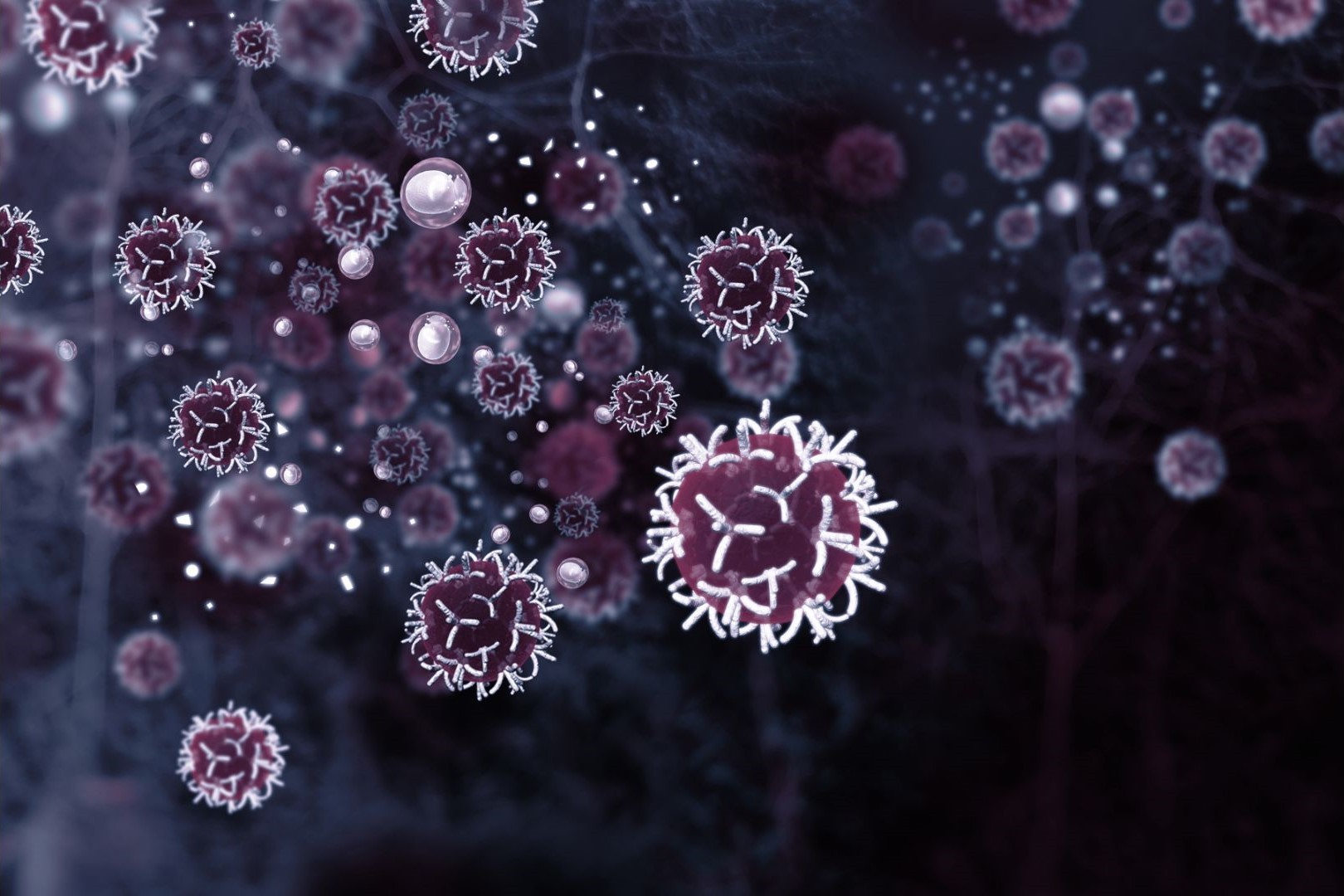Engineered Human Therapies
New Study Reveals Key Enzymes Driving Pancreatic Tumor Growth
Pancreatic cancer cells repurpose cell polarity proteins to increase macropinocytosis, helping tumors thrive despite limited resources
Dec 6, 2024
[Mohammed Haneefa Nizamudeen / Canva]
Cancer cells act like rapidly growing cities without any urban planning, expanding at unsustainable rates. Tumors consume more energy and nutrients than nearby blood vessels can supply, forcing cancer cells to adapt by scavenging resources from their surroundings. In pancreatic ductal adenocarcinoma (PDAC), one such strategy involves reshaping their cell surfaces to extract nutrients from the extracellular matrix, a process called macropinocytosis.
Blocking macropinocytosis has been shown to significantly suppress tumor growth, as it cuts off critical energy and protein sources. While much is known about its role in PDAC, the mechanisms controlling this process under nutrient-poor conditions remain unclear.
A new study published on December 3, 2024, in Nature Communications by researchers at the NCI-Designated Cancer Center at Sanford Burnham Prebys identifies two enzymes that regulate macropinocytosis. The team, led by senior author Cosimo Commisso, PhD, discovered the roles of atypical protein kinase C (aPKC) zeta and iota through high-throughput screening.
“We thought that kinases were likely playing a regulatory role so we ran a screen to compare the activity of the 560 kinases present in humans while cells were undergoing macropinocytosis under nutrient-starved conditions,” explained Commisso.
Glutamine, an amino acid essential for protein synthesis, was withheld during the experiments because PDAC cells depend on it far more than other cancers. The study explored how aPKC zeta and iota enable PDAC cells to seek alternative sources of energy and amino acids under these conditions.
Normally, aPKC enzymes help maintain cell polarity, which preserves the organized structure of tissues and organs. “Cell polarity is necessary to maintain the epithelia surrounding our tissues and organs in a very structured and functional way,” said Guillem Lambies Barjau, PhD, a postdoctoral researcher and the study’s first author. “Cancer, however, wants to expand rapidly, escape the tissue of origin and invade other tissues so it eschews the structure of cell polarity in order to grow in an uncontrolled way.”
The researchers found that aPKC zeta and iota, along with three associated proteins, are repurposed by PDAC cells lacking glutamine. This repurposing increases macropinocytosis, allowing the cells to scavenge additional resources from their environment.
Follow-up experiments demonstrated the importance of these kinases for PDAC growth and survival. “By depleting aPKC zeta or iota in conditions with low levels of glutamine that mimic the nutrient-starved condition of PDAC tumors in the human body, we saw that PDAC cells were unable to proliferate without these kinases,” said Commisso.
The team further validated their findings in a mouse model. Eliminating aPKC zeta or iota in PDAC tumors significantly reduced tumor growth compared to tumors with normal aPKC levels. “We also found that there were lower levels of macropinocytosis taking place in the more nutrient-deprived locations at the core of the tumors treated to remove the aPKCs,” added Barjau. “Together, these results in an animal model lend support to our overall finding that aPKC zeta and iota contribute to the control of macropinocytosis and are needed for cancers like PDAC to grow.”
These findings reveal how PDAC cells overcome nutrient limitations, highlighting potential targets for future cancer therapies. “This work highlights how pancreatic cancer cells hijack cell polarity proteins to regulate macropinocytosis and tumor metabolism, and reveals potential therapeutic vulnerabilities,” said Commisso.


















